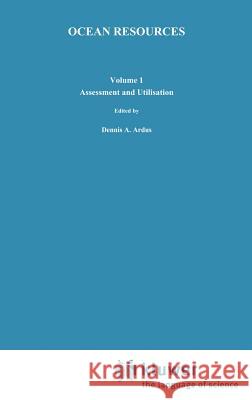Ocean Resources: Volume I: Assessment and Utilisation » książka
Ocean Resources: Volume I: Assessment and Utilisation
ISBN-13: 9780792309529 / Angielski / Twarda / 1990 / 330 str.
Today western nations consume annually only a small percentage of their resources from the sea, despite the proclamation of Exclusive Economic Zones (EEZ) by many. In contrast, most Pacific Basin Countries obtain more than a quarter of their annual needs from the ocean. Determination of greater rewards from the development of marine resources is markedly inhibited by the limited technical abilities available to locate and assess them. Knowledge of Exclusive Economic Zone resources is schematic and generalised, and a detailed understanding of the geology and processes relating to the economic use of the seafloor is both fragmentary and very basic. Technology for mapping the mineral resources of continental shelves and ocean areas, except in active offshore hydrocarbon provinces, has been largely developed in pursuit of scientific objectives and competence to rapidly appraise economic potential is limited. Similarly, the capability to characterise and evaluate the other resources of the seas is rudimentary. The development of ocean resources will become increasingly urgent as the growth of the world population and the depletion of land reserves combine to enhance demand. Also, increasing environmental constraints will limit the availability of traditional land-based resources; nevertheless, new offshore development must proceed in a manner whereby the marine environment is not plundered but protected and conserved. The challenge to develop ocean resources with responsible environmental stewardship will require greater leadership than the development of the technologies of exploitation.











